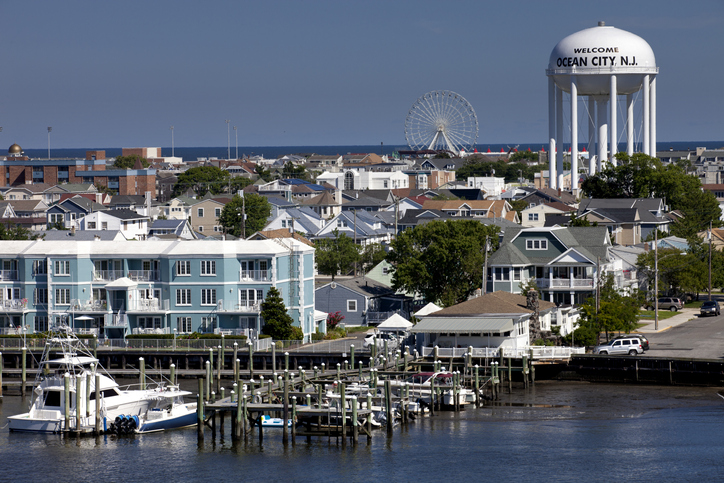 We have all heard the news. The demand for homes is high, and inevitably, prices are rising to meet that demand. But for those individuals looking to buy or sell property in one of the many beach towns located throughout the eastern and southern parts of New Jersey, there may be an added cost that cannot be found on Zillow. That cost is the one owed to the State of New Jersey as it asserts its claim of ownership to the riparian that exists (or once existed) on the property.
We have all heard the news. The demand for homes is high, and inevitably, prices are rising to meet that demand. But for those individuals looking to buy or sell property in one of the many beach towns located throughout the eastern and southern parts of New Jersey, there may be an added cost that cannot be found on Zillow. That cost is the one owed to the State of New Jersey as it asserts its claim of ownership to the riparian that exists (or once existed) on the property.
The term “riparian” refers to lands located on the banks of a natural body of water, such as a river, stream, lake, or the Atlantic Ocean. Riparian doctrine in New Jersey gives property owners along natural bodies of water the right to access and make reasonable use of those waters – known as a riparian right – however, this right means nothing with respect to ownership.
In fact, New Jersey law dictates that the State itself owns, in fee simple, all riparian lands that are currently or were previously flowed by the mean high tide of a natural waterway. This means that if any portion of the property to be sold / purchased is currently or was formerly flowed by the tide, the State claims ownership to that portion of the property, constituting a costly black cloud on the property’s title. This includes even tidal streams or creeks that flowed over a century ago and have long since been filled in and built over, so long as there is a record of the streams or creeks’
existence in maps dating back to the 19th century and/or aerial photography dating back to the 1920s and 30s. In short, a riparian claim can spell disaster for the sale of waterfront property, and the only way to clear title to the riparian is by: (1) obtaining a tidelands license from the New Jersey Bureau of Tidelands Management (the “Bureau”); or by (2) purchasing the land from the State by a riparian grant.
It is Bureau policy, with certain exceptions, that it will not sell riparian lands that are still flowed by the tide. In those situations, a property owner making use of the riparian to, for example, construct a dock or a boat mooring, must obtain a tidelands license, which is essentially annual rent paid to the State to use its land. Tidelands licenses can typically be revoked by the Bureau at any time, and failure to obtain a license can result in the Bureau filing a Notice of Action against the property, which acts as a lien against the property, further clouding title. Furthermore, to the extent the property owner is making use of the riparian lands for a dock or a boat mooring, failure to obtain a license can also result in back rent being charged to the property for however long the property owner has made use of the lands prior to obtaining the license.
For those riparian lands that are no longer flowed by the tide, the property owner can purchase the applicable property from the State by a riparian grant, which is the method by which the State conveys riparian lands to its citizens. The cost of the grant depends entirely on the actual square footage of the claim in relation to the appraised value of the land, and can range from $1,000.00 – the minimum cost of any grant, no matter how small the claim – to hundreds of thousands of dollars for larger claims.
Those individuals looking to buy or sell property on the water, along with their realtors and closing attorneys, must be aware of the potential for a riparian claim. The parties must be diligent in their review of the title search to uncover the existence of a claim, whether there has been a prior grant, and whether any such prior grant was included in any subsequent deeds of conveyance. HLS’ zoning and land use group can assist clients in obtaining riparian grants and all other tidelands related matters.
The contents of this article are for informational purposes only and none of these materials is offered, nor should be construed, as legal advice or a legal opinion based on any specific facts or circumstances.



